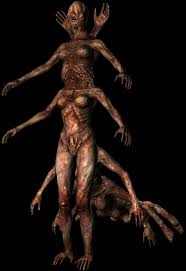
记忆方法
为了记忆单词“asphyxia”,可以使用以下记忆方法:
联想记忆法:想象一个“ash”堆(灰烬)被覆盖,阻止了空气的流通,导致呼吸困难,就像窒息的感觉。这样,你将“ash”和“asphyxia”联系起来,帮助记忆“asphyxia”是指窒息或因缺氧造成的呼吸困难。
联想记忆法:想象一个“ash”堆(灰烬)被覆盖,阻止了空气的流通,导致呼吸困难,就像窒息的感觉。这样,你将“ash”和“asphyxia”联系起来,帮助记忆“asphyxia”是指窒息或因缺氧造成的呼吸困难。
以上内容由AI生成, 仅供参考和借鉴
中文词源
asphyxia 窒息
前缀a-,不,没有。词根sphygmo, 脉膊。古医学认为窒息而死脉膊将随之停止,但现已证实这种观念是错误的(市场买的鱼剖腹后一小时内仍能突然悸动)。
英语词源
- asphyxia (n.)
- 1706, "stoppage of pulse, absence of pulse," from Modern Latin, from Greek asphyxia "stopping of the pulse," from a- "not" (see a- (3)) + sphyzein "to throb." Obsolete in its original sense; the transferred sense of "suffocation" is from 1778, but it is a "curious infelicity of etymology" [OED] because victims of suffocation have a pulse for some time after breathing has stopped.
权威例句
- 1. Death was due to asphyxia through smoke inhalation.
- 死亡是吸入浓烟窒息导致的。
- 2. The most dramatic and urgent sympton in the acutely injured patient is asphyxia.
- 急性伤员的最令人惊恐和紧急的症状是室息.
- 3. To summarize 46 cases of severe neonatal asphyxia recovery and nursing.
- 总结46例新生儿重度窒息的复苏与护理.
- 4. Methods 99 m SPECT was performed in 140 newborns with perinatal asphyxia.
- 方法对140例有围产期窒息的新生儿进行单光子发射型计算机断层(SPECT)脑显像.
- 5. After 6 min of asphyxia, epinephrine and bicarbonate were given and CPR instituted.
- 窒息6min后, 给肾上腺素和碳酸氢钠并立即开始心肺复苏.
